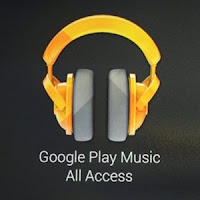Google playing catch up? An odd statement to make about a company that has been lauded consistently over the past decade as one of the most innovative firms in the world. However, that is exactly what Google is doing when it comes to its new Google Play Music service. The monthly subscription service gives users access to millions of songs. Custom playlists and stations, unlimited skipping, and use across multiple devices are features of the service. Sound familiar? Pandora, Spotify, Slacker, Rdio, and Rhapsody are in the game already. Google has to convince music listeners that its new service beats the status quo and that they should modify their listening behaviors and adopt Google Play Music.
It’s OK to be Fashionably Late
Can late-to-market firms succeed in hyper-competitive categories like online music services? The answer is a resounding “yes.” Being first or early to market only assures you notoriety to say you were a pioneer. It certainly does not guarantee success. Otherwise, I would be writing this post on my Commodore 64 computer. Late entrants often benefit by being able to learn from the missteps of pioneers. And, for newer product categories the task of building consumer demand for the product has been borne by competitors that entered earlier. In the case of Google Play Music, the aforementioned competitors along with Apple have transformed how people consume music. Google does not have to convince people that they should listen to music online, only that they should develop a preference for Google’s service.
Answer the Ultimate Question
The failure rate for new products is very high, with estimates being that 80 to 90 percent of all new products do not make it in the marketplace. Thus, the odds are stacked against a new entrant like Google Play Music. This enormous risk is mitigated by Google’s brand equity. If you or I were launching a start-up music service we would likely be prime candidates to be added to the failure rate statistic. However, the launch of Google Play Music as a brand extension in the Google Play platform (which is itself an extension of the Google brand) gives it a level of credibility that most new products must work for years to attain.
For Google Play Music or any other product to succeed, the ultimate question of “what’s in it for me?” must be answered. Customers have to understand how they will benefit from using a product or service. In this case, it is the seamless experience of using Google Play Music along with the suite of Google products. Personally, I am an avid music streamer- I love listening to music while I work. I am giving Google Play Music a try as I write this post (Craig Chaquico’s Acoustic Planet being the album of choice). In the end, I will adopt Google Music Play if I perceive the benefits of the service being superior to Spotify or Pandora. Is it more convenient to access? Is the user interface experience preferred?
Google is a great brand but not a perfect one. It has had its share of product failures over the years, and there is no assurance Google Play Music will succeed. But, if it should fail it will not be due to the order in which it appeared on the market. Similarly, if you are exploring a business opportunity do not automatically be dissuaded if established competitors are present. They exist because no better alternatives have been introduced to the market. That could all change if your offering successfully answers the WIIFM question among your target market.

